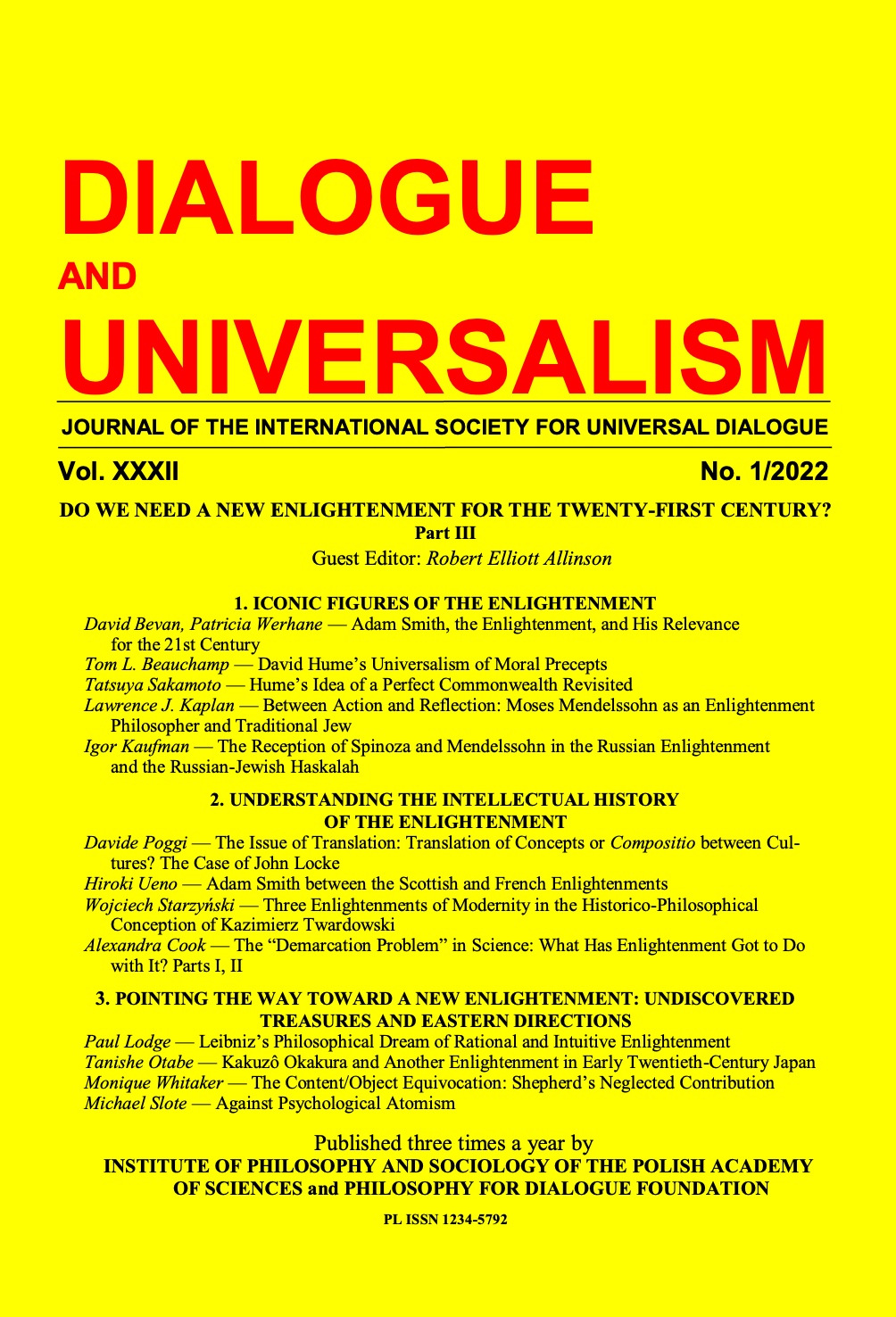ON THE ROLE OF SYMBIOTIC THINKING IN THE AGE OF THE ANTHROPOCENE
ON THE ROLE OF SYMBIOTIC THINKING IN THE AGE OF THE ANTHROPOCENE
Author(s): Piotr Skubała, Magdalena OchwatSubject(s): Philosophy, History of Philosophy, Social Philosophy
Published by: Instytut Filozofii i Socjologii Polskiej Akademii Nauk i Fundacja Filozofia na Rzecz Dialogu
Keywords: symbiosis; Glenn Albrecht; symbiotic stories; Anthropocene
Summary/Abstract: The human influence on the earth’s ecosystem has become so destructive that we need a new vision of the world that will offer hope. The article is an attempt to create a new interdisciplinary way that takes into account the role of symbiosis in the functioning of life on Earth. Australian scholar Glenn Albrecht postulates the conceptual framework for the new epoch and calls it the Symbiocene. which will be characterized by replicating symbiotic life processes in human activities. At the same time, science clearly states that the relationships among organisms are predominantly cooperative and symbiotic in nature. The article focuses on three selected phenomena in which close multilateral cooperation plays a significant role. These are: the life of lichens, the functioning of mycelium with plants, especially the role of Mother Trees over young stands, and permaculture as an example of symbiotic agriculture. We take these examples as a training in collective imagination in good interspecies living and draw on selected literary texts. We believe that the idea of the Symbiocene, an inclusive and integrative philosophy of life, has great potential to become a new direction not only in the natural sciences, but also in the social sciences and humanities.
Journal: Dialogue and Universalism
- Issue Year: 2023
- Issue No: 2
- Page Range: 37-60
- Page Count: 24
- Language: English

